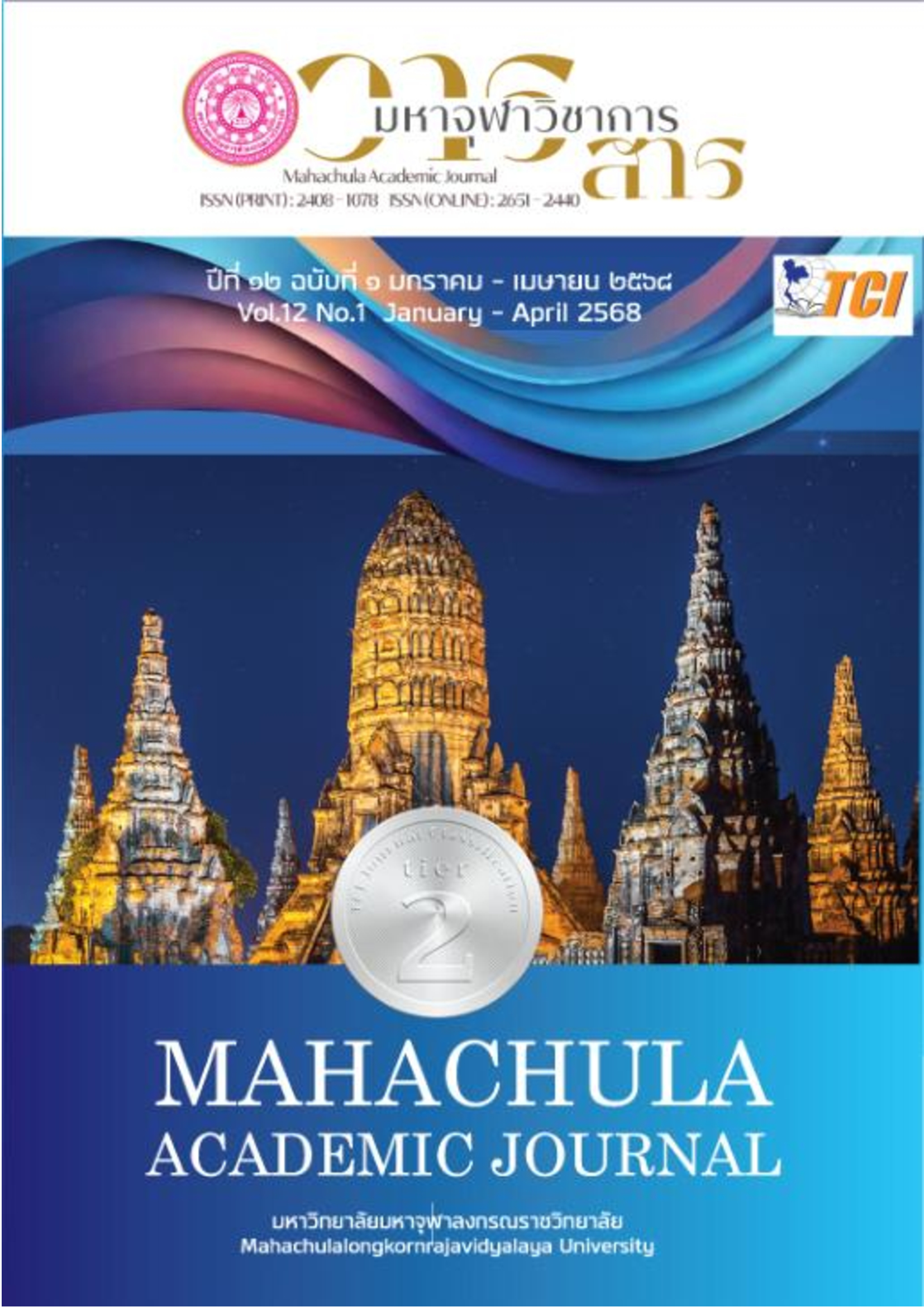The Development of Learning Achievement and Social Skills In Home Economics by Using The Cippa Model Teaching Combined with Board Games for Mathayomsuksa 4 Students at Mae Tuen Witthayakhom School
Main Article Content
Abstract
The purpose of this research are 1) to develop the pre-test and post-test of learning achievement of Mathayomsuksa 4 students who study by using the CIPPA Model teaching method combined with board games. 2) To develop social skills of Mathayomsuksa 4 students who study using the CIPPA Model teaching method combined with board games. To study student satisfaction after studying with the CIPPA Model teaching method combined with board games.The sample group used in this research was Mathayomsuksa 4/3 students at Mae Tuen Mathayomsuksa School. There are 29 people who are studying in the first semester of the academic year 2024, which were obtained through purposive sampling. The tools used in the research include: 1) Lesson plan using the CIPPA Model teaching model combined with board games. 2) Board games on food and nutrition 3) Tests to measure academic and career achievement on food and nutrition 4) Social skills measure in career subjects 5) Satisfaction assessment form Statistics used in data analysis include mean, standard deviation. and t-test dependent
The research results found that: (1) Academic achievement of students studying in Mathayomsuksa 4 who were taught using the CIPPA Model teaching method combined with board games. Higher than before studying with statistical significance at the .05 level. (2) Students' social, academic and career skills from pre-class assessment During study and after study It was found that the average score was higher. And (3) Students who study with the CIPPA Model teaching method combined with board games Have a level of satisfaction Overall, it is at the highest level (X = 4.68, S.D. = 0.04)
Article Details

This work is licensed under a Creative Commons Attribution-NonCommercial-NoDerivatives 4.0 International License.
References
กรมวิชาการกระทรวงศึกษาธิการ. คู่มือการพัฒนาสื่อการเรียนรู้. กรุงเทพมหานคร: โรงพิมพ์คุรุสภาลาดพร้าว, ๒๕๔๕.
ณัฐวัฒน์ วรรณชัย, ปิยมนัส วรวิทย์รัตนกุล. “การพัฒนาบอร์ดเกมการศึกษา เรื่อง ระบบสุริยะ กลุ่มสาระการเรียนรู้วิทยาศาสตร์ ของนักเรียนชั้นมัธยมศึกษาปีที่ ๓”. วารสารวิชาการมหาวิทยาลัยนอร์ทกรุงเทพ. ปีที่ ๑๑ ฉบับที่ ๑ เดือน (มกราคม – มิถุนายน ๒๕๖๕) : ๘๑.
ทิพรัตน์ สิทธิวงศ์. “การศึกษาผลของการใช้บอร์ดเกมเพื่อส่งเสริมการเรียนรู้สำหรับนิสิตระดับปริญญาตรี คณะศึกษาศาสตร์มหาวิทยาลัยนเรศวร”. วารสารศึกษาศาสตร์ มหาวิทยาลัยนเรศวร. ปีที่ ๒๓ ฉบับที่ ๔ (ตุลาคม- ธันวาคม ๒๕๖๔) : ๑๘๗.
นวพล กรรณมณีเลิศ, ปิยวรรณ กันทอง, เจนนิศา จั่วจันทึก. “การเปรียบเทียบผลสัมฤทธิ์ทางการเรียนวรรณคดี เรื่อง สุภาษิตพระร่วงโดยใช้รูปแบบการสอนแบบ CIPPA Model กับการสอน แบบปกติในระดับชั้นมัธยมศึกษาปีที่ ๑ โรงเรียนกันทรลักษ์วิทยา”. วารสารบริหารการศึกษาบัวบัณฑิต. ปีที่ ๒๔ ฉบับที่ ๒ (กรกฎาคม - ธันวาคม ๒๕๖๗) : ๑๐๑ – ๑๑๙.
บุญชม ศรสะอาด. การวิจัยเบื้องต้น ฉบับปรับปรุงใหม่. พิมพ์ครั้งที่ ๑๐. กรุงเทพมหานคร: สุวีริยาสาส์น, ๒๕๖๐.
พิมพร พยุหะ. “การใช้การอ่านแบบจิ๊กซอว์ เพื่อส่งเสริมความสามารถในการอ่าน การเขียนสรุปความภาษาอังกฤษ และทักษะทางสังคมของนักเรียนชั้นมัธยมศึกษาปีที่ ๔ ”. วิทยานิพนธ์ศึกษาศาสตรมหาบัณฑิต. สาขาการสอนภาษาอังกฤษ: มหาวิทยาลัยเชียงใหม่, ๒๕๕๗.
ภูษิตา นกสกุุล, อรััญญา ศรีีจงใจ. “การพัฒนาบอร์ดเกมเรื่อง Going to the Movies เพื่อใช้ส่งเสริมการ เรียนรู้ด้านคำศัพท์ภาษาอังกฤษ สำหรับนักเรียนชั้นประถมศึกษาปีที่ ๔”. วารสารวิจัยรำไพพรรณี. ปีที่ ๑๘ ฉบับที่ ๑ (เดือนมกราคม - เมษายน ๒๕๖๗) : ๑๖.
วรพล ยวงเงิน. “การนำเกมกระดานเข้าสู่โรงเรียน”. วารสารศึกษาศาสตร์ มหาวิทยาลัยนเรศวร. ปีที่ ๒๓ ฉบับที่ ๔ (ตุลาคม - ธันวาคม ๒๕๖๔) : ๔๔๘.
อังศุธร อังคะนิต. “ผลของการจัดกิจกรรมการศึกษานอกระบบแบบมีส่วนร่วมเพื่อพัฒนาการละเล่นพื้นบ้านที่ผสมผสาน ภูมิปัญญาท้องถิ่นที่มีต่อทักษะทางสังคมของเด็กในชุมชน”. วารสารอิเล็กทรอนิกส์ทางการศึกษา. ปีที่ ๙ ฉบับที่ ๔ (ตุลาคม - ธันวาคม ๒๕๕๗) : ๓๘.


